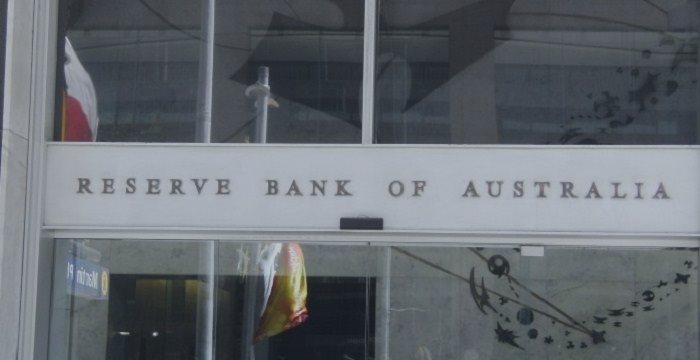
The Reserve Bank of Australia (RBA) has just become the latest passenger to join the central bank surprise train, with the RBA unexpectedly easing monetary policy a few hours ago. The RBA cut interest rates to a new record-low at 2.25% in a move that resulted in the Aussie tumbling to a new five-and-a-half-year low at 0.7649. This also represents the 12th central bank to ease monetary policy this year, which says a great deal regarding central banks battling to reinvigorate economic growth at a time when global economic recovery fears remain elevated and with central banks being left completely stunned by the collapse in oil prices creating an unexpected deflation threat for many economies.
Following the latest inflation data showing that Australian inflation levels had decreased to their slowest pace in over two years, speculation increased substantially that the RBA might cut interest rates. Nonetheless, not many expected it to occur so soon and many have been left surprised by the decision from the RBA today. The Australian economy has previously received criticism for being slow to adapt away from relying on its mining sector and with recent data showing China economic growth is continuing to slow down, perhaps the RBA saw the present as an opportune time to give domestic growth a push and reinvigorate its economy. There are forecasts for this pair to conclude the year around 0.70 and with the economy expected to be impacted by the drop in commodity prices and the RBA now easing monetary policy, this is looking more possible.
Elsewhere, the other major mover over the previous 24 hours has been the GBPUSD with the pair dropping by nearly 90 pips to 1.5005. This occurred despite the UK manufacturing PMI for January beating expectations, and goes some way towards understanding the negative GBP sentiment at the moment, which is repeatedly reducing investor attraction towards the pound. Although the manufacturing sector expanded more than expected, investors are clearly concerned about other issues surrounding the UK economy at the moment, with this making investors very hesitant towards entering positions.
Issues of concern include the unexpected UK deflation threat, with the overwhelming consensus looking at the price of Oil continuing to fall in December and January as a reason to expect UK inflation levels to continue weakening. The deflation threat has also completely erased any optimism that the Bank of England (BoE) might have raised UK interest rates this year, with interest rates expectations being repeatedly pushed back. Not only this, but there are signs of UK domestic momentum slowing down and investors will be keeping a close eye on the upcoming UK general election. After the unexpected volatility the markets experienced around the Scottish Referendum, potential investors are probably going to have a strong preference towards waiting for any potential political uncertainty to clear before evaluating entering the currency.
What does the above mean for the Pound? Investor attraction is going to remain limited for at least the first quarter of the present year, with GBPUSD gains being seen limited to USD weakness. This also means the GBPUSD will likely continue to trade in some sort of range, albeit with a slight downside bias.
Attention is also focused on the oil markets, where the price of Crude has continue to bounce higher during the beginning of the week. WTI Crude jumped to $50.09 on Monday, which represents a $6 advance in two days. This is going to lead to optimism that a floor has been found, although I remain doubtful because the economic outlook for the commodity has not changed. Traders could have been inspired to take profit on positions after the unexpected reports of a drop in US rig counts at the conclusion of last week, which provided an indication that producers are potentially responding to such an aggressive over-supply in the markets.
Nonetheless, there remains a supply surplus of around 2million barrels of the commodity a day and the earning figures released from BP later today are probably going to show how unprepared corporations have been for the complete decline in the price of oil.
Written by Jameel Ahmad, Chief Market Analyst at FXTM.
For more information please visit: Forex Time.
Disclaimer: The content in this article comprises personal opinions and ideas and should not be construed as containing personal and/or other investment advice and/or an offer of and/or solicitation for any transactions in financial instruments and/or a guarantee and/or prediction of future performance. ForexTime Ltd, its affiliates, agents, directors, officers or employees do not guarantee the accuracy, validity, timeliness or completeness of any information or data made available and assume no liability as to any loss arising from any investment based on the same.
Risk Warning: There is a high level of risk involved with trading leveraged products such as forex and CFDs. You should not risk more than you can afford to lose, it is possible that you may lose more than your initial investment. You should not trade unless you fully understand the true extent of your exposure to the risk of loss. When trading, you must always take into consideration your level of experience. If the risks involved seem unclear to you, please seek independent financial advice
NOTES TO EDITORS
The FXTM brand name was founded by Andrey Dashin in December 2012. FXTM provides access to the global currency market and offers trading in forex, precious metals, Share CFDs, ETF CFDs and CFDs on Commodity Futures. Trading is available via the MT4 and MT5 platforms with spreads starting from just 0.5 on Standard trading accounts and from 0.1 on ECN trading accounts. Bespoke trading support and services are provided based on each client’s needs and ambitions – from novices, to experienced traders and institutional investors. ForexTime Limited is regulated by the Cyprus Securities and Exchange Commission (CySEC), with licence number 185/12 and FT Global Limited is regulated by the International Financial Services Commission (IFSC) with license numbers IFSC/60/345/TS/14 and IFSC/60/345/APM/14.


